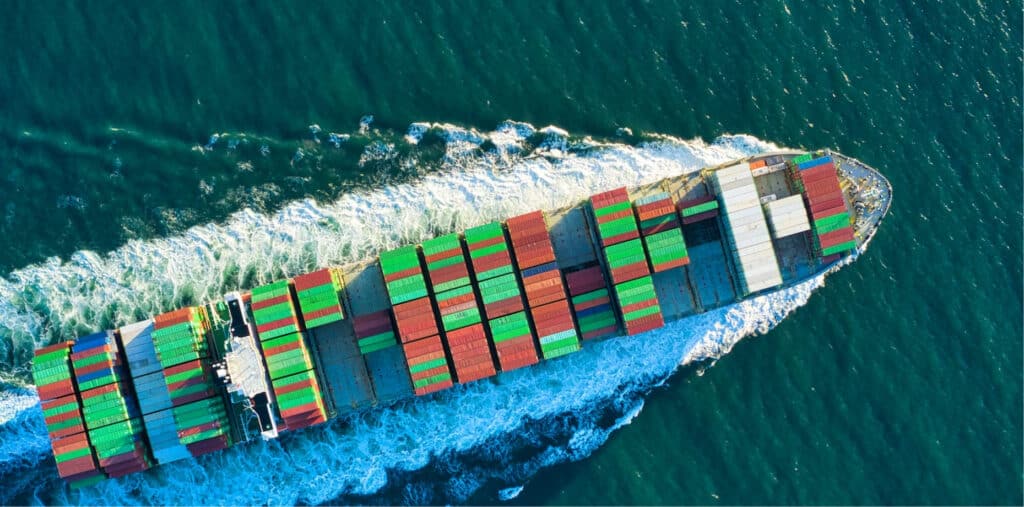Pooja Kothari: All right. Hello everyone. And welcome to DataHawk’s webinar. Today we are talking about how you can stay tax compliant in Europe and automate your VAT related issues. We have a very interesting VAT expert with us for eCommerce businesses. Hi Klaudia.
Klaudia Bretta: Hi. Hi everyone. Thank you for inviting me here today.
Pooja Kothari: Klaudia is a VA expert for eCommerce businesses and also a sales consultant at hellotax. Klaudia, would you like to introduce yourself and tell a little bit about what you do and what hellotax does?
Klaudia Bretta: Yes, of course. So, since 2016, we are helping eCommerce sellers to be compliant in Europe. So, we are helping them [inaudible] for VAT in different countries in Europe, especially Amazon countries in Europe. And then we have them to be compliant. So, VAT returns and everything that is connected.
Pooja Kothari: That’s very interesting because it’s, you know, it’s very right that when you are Amazon businesses are at their peak, it’s very natural to want to expand internationally. And there’s no doubt that, you know, a green field of opportunity is there, but it comes with substantial risks and challenges and one must be prepared for these. And before we take a deep dive into, you know, into the challenges of new Amazon markets, head first. It’s very important to do your groundwork and, you know, to start to understand how to sell products internationally, you know, on what factors it depends.
Mainly your CAP, your cost of upfront investments and your customer acquisition costs, you know, including your market sizes and growth potential. Then one should look at the speed of the market and also the nature of the sales cycle. And involving all of these, there are a lot of expansion challenges that one should consider. For instance, you know, challenges related to business like organizational readiness, or rebuilding your brand authority and trust and understanding geographical differences in demand.
That is very important. You know, looking at price points and fraud risks. Also looking at product challenges and logistic challenges for instance, fulfillment and shipping practices, or, you know, what are the legal and data protection issues that are going on or in market customer support systems? What is one most important point here is, you know, the payment differences, and the currency configuration, because everything that I just said above comes back to one thing, which is payment difference and currency concentration.
And the deep understanding of the role of different currencies, you know, plays a great role in international transactions. And this is very essential to understand this, and you’ll need to know the payment platforms also used across borders. I think that’s where tax compiles and expansion challenges related to it also should be considered. What do you think, Klaudia, would you like to take it from here and explain, you know, give us more detail and insights on how things will be changing further?
Klaudia Bretta: Yes, of course. So, I will, first of all, present to you the topics that we will be touching on today. So, as you can see, we will be talking about tax compliance, expansion challenges. Okay. So, as you were talking, this is really a thing that we need to consider before starting our business before expanding into a European country or the European market right now. We will also talk about the reason to register for VAT. So, the reasons that are ongoing right now until the 1st of July, and about what will happen after the 1st of July. About the OSS changes for EU sellers and for the non-European companies. And also, about what we do as hellotax at the end and how to get free VAT consultation with us.
Okay. So, yeah, as said before, what problem are we solving is quite easy. We are here to help said eCommerce businesses that are struggling with VAT registration, VAT topics, as we know, it’s not always easy. We are not all tax experts and sometimes starting a business and expanding in different countries, it can be really difficult. And for that we are here to help this kind of seller, so European and non-European sellers that wish to expand into Europe.
So, what is the first step? Okay. What is the first step, if you wish to start a business in Europe? If you wish to start a business in Europe under VAT perspective, of course, first of all, you need to know your VAT liability. So, from the past and the present, in the European country where we are operating, because we need to really make sure that we are taking a look at every single country in which we are selling.
Today, we are in Europe, but in the end, its European countries, unfortunately, still have different rules. Then of course, register for VAT in different countries. And later on, we will see the reason why you need to register for VAT, when it is really a mandatory register. Get a view on goods movement. Okay. So also, here it’s really important to always take a look at where our products are stored also, because of the local legislation and in order to be compliant.
And yes, have complete visibility on all your sales channels and to see how you’re performing in different countries and in different periods. And take a look at the threshold, take a look on how much you are selling in each country separately. Sorry, this is absolutely really important because we are not thinking about this part when we are opening an eCommerce business, we are more thinking about, you know, what product we need to choose and this kind of thing. But then there is all this difficult part there that is really important.
Pooja Kothari: Right. Absolutely. So Klaudia, I have a question. So, when you apply for that number in your home country, is it only one registration that is to be done or there are multiple registrations?
Klaudia Bretta: Do you mean like in your home country, if you need to have more VAT numbers or? No, you always need just to have one VAT number per country. Okay. I will explain.
Pooja Kothari: If you are in a non EU country, then if you are a non EU client, in that case?
Klaudia Bretta: In that case there are few reasons why you need to register for a VAT and one of those reasons can be that even if you are a non-European seller, you are storing in a European country, and because of this, you need to have the VAT of that country. So, I will give you an example, a USA client, okay. Is storing, for example, in FBA, in Amazon, in Germany and in France mandatory. Absolutely. For him to have the VAT registration, both in Germany and in France, in all the countries that he is selling and storing it. Especially storage because storage means that you need to have the VAT in this country.
Pooja Kothari: Right. Okay. Okay. Thank you.
Klaudia Bretta: You’re welcome. And, yeah, so when I was talking about the differences that there are in Europe, I think that this map can really highlight this because as you can see, we don’t have the same rate in all European countries, going from 18% to 25%, goes to 27%. Sorry. So, you see that even the VAT rate is really difficult. No, it’s really different from country to country. And this is why we really need to really take a look at which country, in which we are selling to. Okay. So, talking about the complexity of the VAT registration process, of course, there are several countries in which the registration process is hard. And quite longer than in the others. Okay. Talking about, especially the countries in which Amazon has warehouses.
We can see that Poland is really one of the simplest one, and Spain is really one of the painful one because registration in Spain can sometimes be really hard. But of course, if registration needs to be done, there is nothing that we can do. We just need to have patience and register in the country where we need it, but also here the differences are in each European country. So, each VAT process in each country can be a little bit different and each country can require different documents. But of course, we at hellotax we are doing this on a daily basis. We have our tax experts that will absolutely able in case to help you. Yeah. This is really, really important.
So, the reasons to register for VAT this is really important. So, talking about the distance selling threshold limit, we have two situations. So, the situation that we have right now until July and what will happen after. So, right now in July there are different threshold limits in Europe, moreover going from 35,000 euros net per year to 100 K. And when you reach a threshold in a country you need to register for VAT, but what will happen from 1st of July? Basically. the thresholds will no longer be valid with the introduction of the one stop shop.
But of course, if one of you will pass any threshold at the moment, you will be still liable in this country. Another part that will not change with the one stop shop coming is the storage I was talking before. So, if, for example, you are doing the Pan European package on Amazon. The European fulfillment you need immediately, for example, to have six VAT numbers. So, you need to have Spanish, one French, one German, one Polish, one check Republic, and Italian one. So, this will not change from the 1st of July. So, if you store in a country, you always need a VAT there.
Pooja Kothari: Okay. Okay. And if a seller is not, you know, doing or going for storage in a country, then can they, you know, do they have to register for their VAT ID or they can register themselves in that country?
Klaudia Bretta: If they can register themselves?
Pooja Kothari: Yes. Because you said that it’s very important when they are doing storage in a country.
Klaudia Bretta: Okay. But are we talking about European clients or non-European companies?
Pooja Kothari: You can tell us for both actually.
Klaudia Bretta: Okay. Okay. So about European companies, we will also be talking about that at this moment. Basically with the new OSS regulations. Okay. Here we can see it. So I will also use that. So basically with the new European, with the new OSS regulation if you are a EU company, okay. You will be able basically to get the VAT number just in your home country, and apply for the OSS in your home country, because you can see that European clients can only apply for OSS in the home country.
They cannot decide. And basically when you will be selling from your home country. I am, for example, a German company. I have German VAT and OSS in Germany, I can sell from Germany to any European country. And thanks to the one stop shop. I will pay all VAT taxes just to German tax authorities, basically.
Pooja Kothari: Right. Okay.
Klaudia Bretta: Yes. And as you can see for non-European companies, okay. They need to decide, okay. One country in which they register for VAT and in which they have their business activity, they decide which country and the country remains as a choice for the following two years. And this country, as you can see, is called a member state of identification. So basically if someone is selling, for example, in Germany, France, and Poland, can decide which country will be their member state of identification and apply for the OSS in this one country. Yeah. I know that these topics are quite complex.
There is a lot to say, but yeah, we will just give a general presentation then. Of course we are here for any question in the future. Okay. Here is quite important. So EU companies threshold. Okay. So there is a difference between European companies storing in this one place and European companies storing in different countries. So as you can see, a company that is storing in just one European country has one European distance sale threshold of 10,000 Euro. And this threshold is already considered as met if it was met in the previous year or in the current year.
For European companies that are storing in different countries and also for all non-European companies. So basically, they don’t have a threshold limit, and they need to calculate the VAT based on the destination country. So this is really important to take a look at. Also thinking about the future business model and how we would like to expand our business into Europe. Another really important topic is the new rules in which online marketplaces will be collecting VAT. So they will not be able to be responsible for all types of transactions.
There are only two types of transactions that they can be made responsible of, so we can see, one type is when a non-European company is storing in a European country, and making a sale directly to the customer to EU customers, right? So one type of transaction is another type of transaction that can make the marketplace responsible for collecting VAT if we are selling products to Europe directly from non-European countries. So it means that for example, we can make a marketplace responsible for VAT and transactions if, for example, we are a USA company storing the goods in the USA. We are selling directly to a customer in Germany, and the whole order value is not exceeding 150 euros. In this case, we can make the marketplace liable and the marketplace will be collecting the VAT.
Pooja Kothari: Right. Okay. Okay. Very clear.
Klaudia Bretta: Okay. One of the last things, so about non-European sellers storing in the EU, what will it look like? So we see, we have a circle here. So basically in the moment of receiving the payment, the marketplace will buy the product from the seller. Okay. The marketplace will sell them the product to the final client. So the marketplace will sell the product and not directly the seller, then the VAT payment. Okay.
So the marketplace will pass the VAT amount to the tax authorities, and then non-European companies will receive the net amount. So it means that, of course he will not receive the sales price because the sales price is always with the VAT already inside, and will receive the net amount, so the amount without the VAT.
Pooja Kothari: Klaudia, I think you’re on mute.
Klaudia Bretta: Oh, so sorry. So last topic, so what makes a marketplace, the deemed supplier? So we always need to check this. So there are, as we can see, two levels of validation. Okay. And if the answer to both levels of validation is yes. So the marketplace will be considered as a deemed supplier, and this is really important. So first of all, we need to check if the marketplace is participating or controlling at any stage, at least one of the topics that we have there. So the terms and conditions of the sales, authorization of the charge to the customer for the supply, or ordering or delivering the goods. So this is absolutely the first part that needs to be checked.
And then, the second level of validation is really, really important, we need to see if the marketplace provides more than one service in relation to the sale. So it provides, for example, the payment processing, listing or advertising the goods, redirecting customers to other marketplace where the goods are offered without any further involvement in the sales. So I said, if the answers to both levels of validation are yes. So the marketplace will be considered as the supplier, and this is really important. I will pass it right now for a moment to you Pooja, again?
Pooja Kothari: Yeah. Maybe before we go to the end, I think we can also let people know how you know, how these upcoming changes will be beneficial to them. And is there any way, or any steps that they should specifically look at, you know, to prepare themselves for these changes?
Klaudia Bretta: It’ll be really beneficial for eCommerce sellers because at the end, before with the threshold limits that were existing, if you are selling a lot, you really need to have a lot of VAT numbers. So a lot of VAT numbers means a lot of cost. Okay. Because at the end you need to appoint services or tax accountants that take care also of the VAT in all these countries. And with these regulations, if you really just store in one country, for example, you really can do all with the OSS, so this is really absolutely awesome.
Pooja Kothari: Right. Thank you. That’s very clear and helpful. Thanks a lot.
Klaudia Bretta: Okay. So yeah, I will pass it to you again. I think that you had something to say at the end about DataHawk, right?
Pooja Kothari: Sure. Because I think it’s very much related when we are talking about tax compliance and challenges of moving to different marketplaces. Also managing and, you know, managing more based on business analytics. Your Amazon business, it’s very important to have something, you know, have a tool or have a software that helps you automate or simplify your work per se, and also take a more, you know, data driven approach. And that’s where exactly DataHawk comes in.
So for those who are on the webinar today if you are a DataHawk user already just hang on for a second. And if you are new to DataHawk, I will just give you a brief of the top products that we have. It includes, you know, SEO, which takes care of your daily organic performance, and you’ll have analytics on your organic performance and ways to optimize it better. You also find product data analytics where we provide key metrics on any product on Amazon, you know, like pricing or star ratings, estimated sales, and you also have alerts and triggers that can help you keep a track on it.
You know, receiving daily alerts or immediate alerts in a way. And then you can do your market research and intelligence as well on our platform. That’ll help you gain insights on market dynamics. And, you know, what is the optimum prize to be ranked on the first page for an organic search? What we also offer is advertising analytics, which will help you to monitor and analyze your advertising performance, you know, impressions, your conversion rates, your ad spends, all your KPIs for your advertising metrics.
And in the end, we have financial analytics to help you monitor your daily sales and, you know, sales orders and units sold. What is really interesting is also our sales estimator. And one recent feature that we have launched is DataHawk’s ROI calculator. Klaudia, if you can allow me to share my screen, I’ll just quickly share my screen. Just a second. Okay. Can you see my screen?
Klaudia Bretta: Yes, I can.
Pooja Kothari: Okay. Okay. Can you see the ROI calculator?
Klaudia Bretta: Yeah.
Pooja Kothari: Okay. So if you go to DataHawk’s calculator, it is basically a calculator that can help you quickly and easily calculate your, you know, annual estimated benefits. If you decide to use DataHawk for your you know, day to day eCommerce business operations, scale your users in a way. So, you know, from boosting your team’s productivity or by saving the working hours or increasing your sales and margins. So identify, you know, what are the missed sales opportunities and, you know, the ROI calculator is very beneficial in terms of estimating what you, you know, what potential potentially you could save.
When I say what potentially you could save, I mean, you know, potentially saving your working hours or your overhead values, or saving on technology or making extra sales. So identifying each of these opportunities definitely is beneficial. I think Klaudia got disconnected. Okay. So anyway, to finish this off if you are interest Okay. So anyway, to finish this off if you are interested I suggest, definitely go on DataHawk’s ROI calculator, and have a look. It could really help you understand how, how you can make your investment strategy more stronger.
Taking you back to the presentation. If you would like to connect with hellotax, here’s what you can do. You can contact Klaudia and stay VAT compliant in 2021. You can book a free consultation call with them. You can contact Klaudia on LinkedIn, and I will make sure that I send you an email with all the details, as well as recording of the webinar in case you have missed it and still registered for the webinar. So thank you guys. Thank you so much for joining in, and I hope to see you in the next one. Bye.




